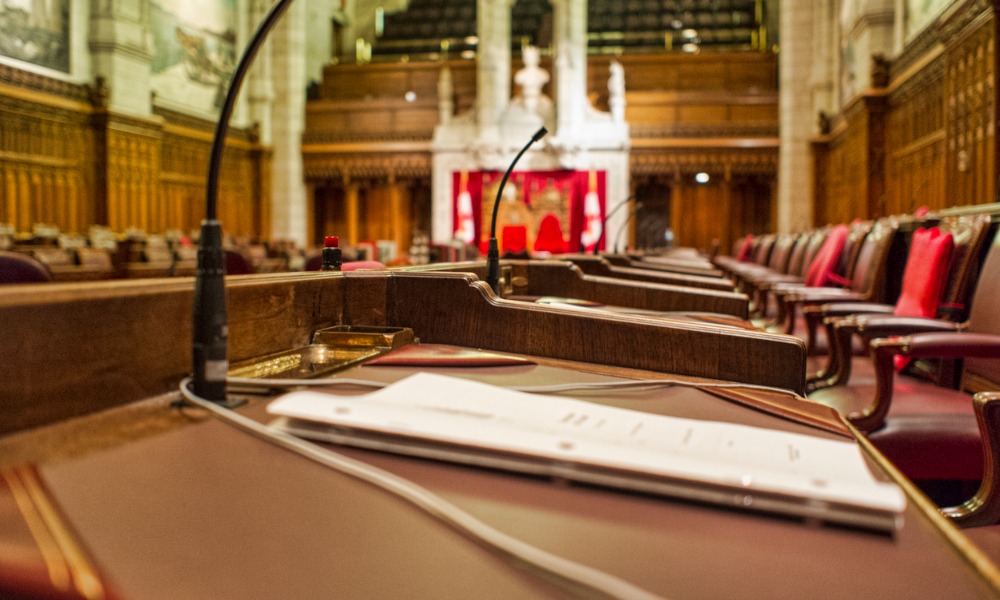Lower court failed to provide an intelligible pathway to the decision: NSCA

The Nova Scotia Court of Appeal recently reaffirmed how vital it is for judges to explain the reasoning behind their decisions – to create “an intelligible pathway to the decision” – and not just lay out their conclusions.
Writing for the bench, Justice Carole Beaton quashed the fraud conviction of Tracy Kitch and ordered a new trial for the former CEO of the Halifax IWK Children’s Hospital. Kitch was accused of charging personal expenses to her corporate credit card, invoicing her employer for personal expenses and using corporate flight passes for personal travel.
Justice Beaton explained that after a 12-day trial in November 2021, Provincial Court Judge Paul Scovil delivered a verdict that did not “adequately explain why the decision was reached in this case.”
Most Read
She added, “I am unable to discern why the judge was satisfied, on the totality of the evidence, of the appellant’s guilt. The reasons do not reveal any consideration of the defence arguments, and thus we do not know how or if the judge viewed the evidence differently than was suggested by the defence. The error is not in the omission alone, but in reasons that fail to identify how the judge reached the verdicts beyond a reasonable doubt.”
Justice Scovil’s original decision noted that Kitch reimbursed IWK more than $45,000. He wrote that the “evidence before the court clearly showed that Ms. Kitch used corporate funds for personal expenses, placing IWK funds in potential peril” and “As CEO, and having signed documents relating to the same, Ms. Kitch clearly had knowledge that the use of flight passes, and corporate credit cards were not to be used for personal expenditures.”
That clarity, however, wasn’t evident to the Court of Appeal.
As Justice Beaton explained, “Although the judge reviewed the factual circumstances in his reasons, he did not explain how they supported his ultimate conclusion the Crown had met its burden.”
Justice Beaton said Judge Scovil failed to articulate his determination of requirements for the actus reus and mens rea of the fraud.
“The judge did not have to provide exhaustive reasons that touched on each and every aspect of the evidence. However, we do not know how the judge reached his determination of the actus reus – the guilty act – in relation to the offence of fraud. The judge’s analysis also prevents appreciation of his consideration of the mens rea of the offences. For example, the judge remarked on the appellant having repaid monies to her employer. In what way, if at all, did this factor in to his determination of her culpability? One cannot be sure.”
The appeal court’s decision also noted that Judge Scovil found all witnesses credible and “made no distinct or particular credibility findings in his decision.”
The decision by the NSCA isn’t new law or even a bright line, but it is a reminder to judges that they must explain the reasoning for their decisions, says Richard Devlin, a professor at the Schulich School of Law at Dalhousie and the former founding president and former chair of the Canadian Association of Legal Ethics.
“It is vitally important for judges to give reasons for the decision. Judges don’t have the power of the sword. They’ve only got the power of the pen, so they really have to give their reasons as clearly as possible, not just for the parties [involved], but more generally, to maintain the legitimacy of the judiciary. [Decisions are] designed to make sure that there’s transparency and accountability. Much of judicial legitimacy is dependent on what we call a culture of justification: to help people to justify the outcomes, not just to state what the outcome is or what the judge’s findings are,” says Devlin.
Devlin, however, was also sympathetic to the role the NSCA has to play when reviewing a case from a lower court, especially when the caseloads are so high, and the workload is so heavy for judges. He said Justice Beaton and her colleagues’ ruling was balanced and reasonable.
“The Court of Appeal is pretty clear that they’re not meant to jump over provincial court judges every time and that the standard is not one of perfection. There is an awareness here of appellate restraint. The standard really is that the judge must provide an intelligible pathway to the result. That’s what’s missing… [The Court of Appeal is] pretty much aware of, and is not seeking a perfectionist standard, but something that really is intelligible so people can follow the reasoning as to how the judges get to the conclusions they get to.”
Overall, he felt the ruling did a good job of navigating the tricky situation when an appeals court must overturn a lower court’s decision.
“There can be times when courts of appeal can get a little bit testy with trial judges. I thought, in this case, they were clear in their thinking, but they weren’t testy with the judge or mean-spirited… The court tried to be as explicit in its own reasons as to why it found that what the judge had provided was not sufficient.”










